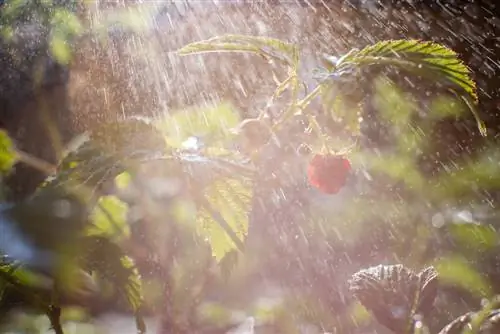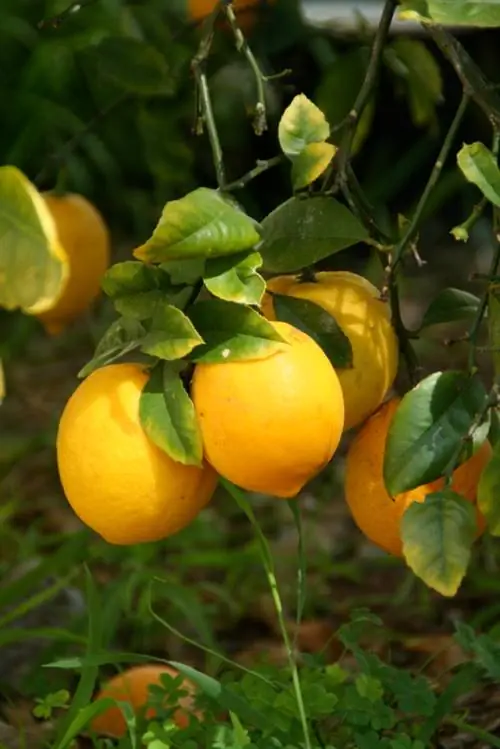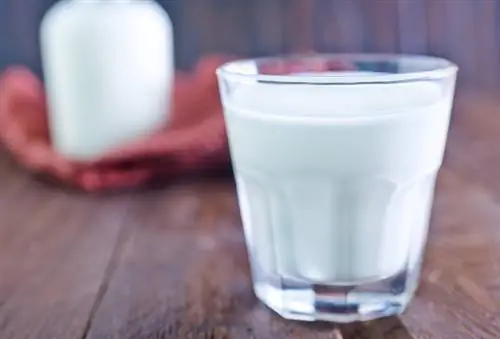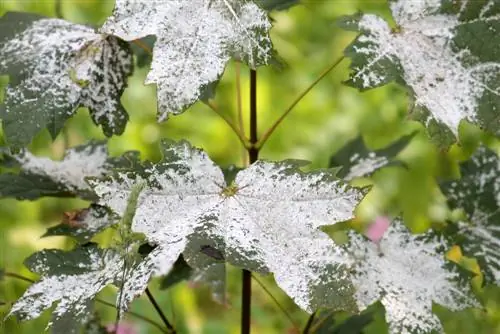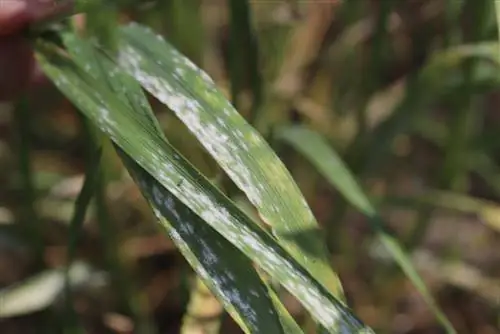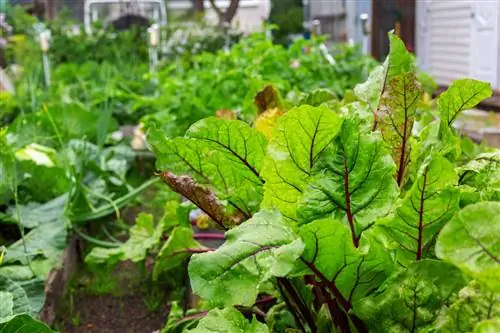- Author admin leonars@hobbygardeners.com.
- Public 2023-12-16 16:46.
- Last modified 2025-01-23 11:22.
The raspberry is a particularly popular plant that can be found in many home gardens. Nevertheless, this plant also has to struggle with diseases. A particularly stubborn and insidious pest is the so-called powdery mildew, which can be dangerous for raspberries.
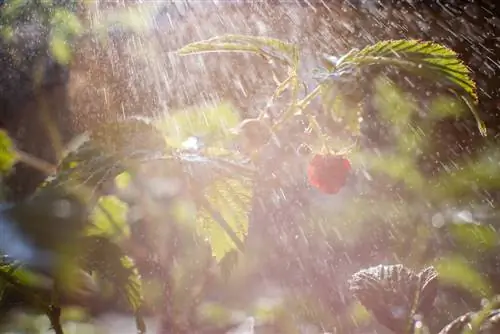
How to treat powdery mildew on raspberries?
To combat powdery mildew on raspberries, use natural remedies such as nettle or horsetail decoction. Regular examinations, checking soil moisture and possible replanting prevent renewed infestation. A ratio of one to six diluted milk can also help.
How does powdery mildew appear on raspberries?
Mildew infestation on raspberries can be detected particularly easily and without any doubt. In this case, the leaves haveyellowish discolorations, which are located along the leaf veins. Over time, this discoloration changes to a dark reddish brown. Due to the disease, the raspberry gradually loses its leaves. The larger the infestation, the higher the leaf loss. This process is due to the severe water loss caused by mildew.
How can raspberries be permanently freed from mildew?
If powdery mildew has been identified as the cause of leaf loss, a few simple but effective remedies against the infestation can help. Spraying with nettle or horsetail decoction is best suited for this. To do this, add nettle leaves or horsetails to a pot of water. This broth should be left to stand for 24 hours and then brought to the boil. After a few days, this mixture finally begins to ferment and can then be used as a natural control agent.
How can raspberries be protected against annoying diseases?
To avoid annoying diseases such as downy mildew, the raspberry should be subjected to regularexamination and care. This means that diseases can be detected and treated in their early stages. In addition, controlling soil moisture is particularly important for the preservation of raspberries. If the plant has already been affected by powdery mildew, transplanting the raspberry should be considered. Mildew spores can survive in a moist environment for up to 15 years.
Tip
A glass of milk as a natural fungicide
If the raspberry is infected with the insidious mildew, a simple home remedy can provide a quick and effective remedy. Commercially available cow's milk is considered a real miracle cure for the disease. To do this, some Milf is diluted with water and sprayed onto the affected areas. A natural control agent can be produced in a mixing ratio of one to six.

